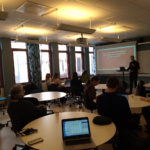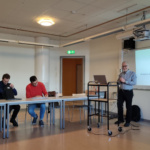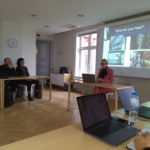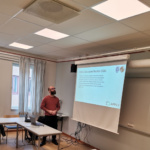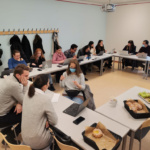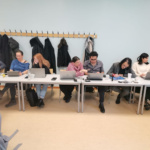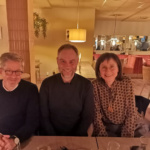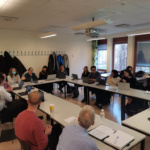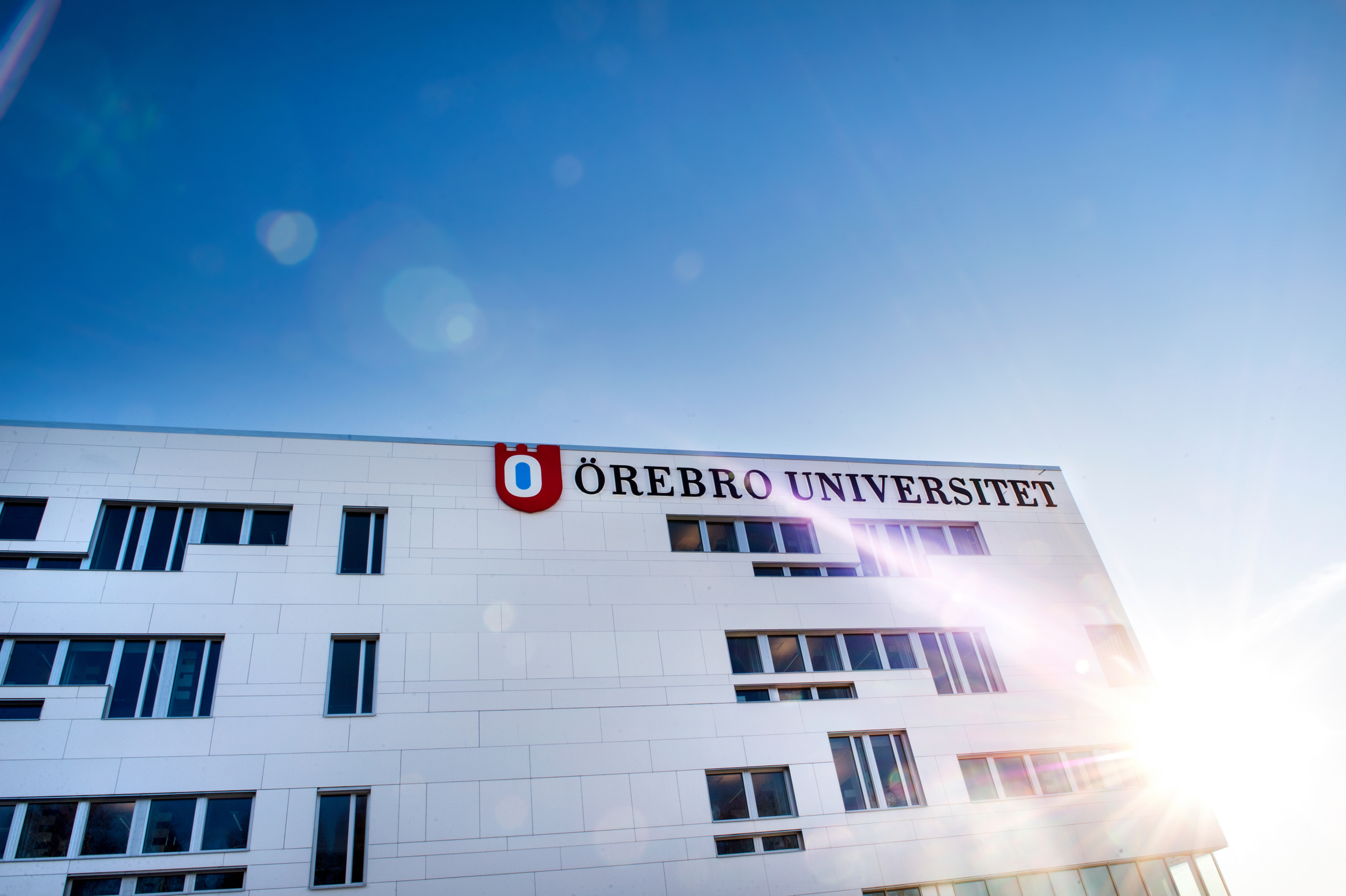
Örebro APPLY Training School: Multimodal Rhetoric and Argumentation
in Public Policy Communication
APPLY HERE, until February 14, 2022
Örebro University | April 5-7, 2022
The purpose of this training school is to introduce the participants to a variety of approaches to the study of the multimodal communication of public policy from the perspectives of rhetoric and argumentation studies.
Theme
With the support of the European network for Argumentation and Public PoLicY analysis (APPLY) COST Action CA17132, the School of Humanities, Education and Social Sciences at Örebro University organizes a three-day training school on Multimodal Rhetoric and Argumentation in Public Policy Communication. The APPLY COST Action seeks to improve the way European citizens understand, evaluate and contribute to public decision-making on such matters of common concern as climate crisis, energy policies, but also immigration policies and, most recently, health policies concerning the covid-19 pandemic. To achieve this goal, the researchers and practitioners involved in this network explore ways of treating the gaps in communication and argumentation that arise between citizens, policymakers, and scholarly experts.
Such communication, more often than not, is not constituted merely by spoken or written words but also by images, graphic elements, gestures and sounds that characterize the multimodal documents and messages which are distributed and circulate in a variety of genres and media. The question then arises not only how to study multimodal communication in general but also how to study the argumentative functions and rhetorical effects that the combinations of various semiotic resources have. The acknowledgement of the multimodal nature of communication is a crucial step for the improvement of tools for the analysis and evaluation of argumentation and deliberation in public policy contexts.
During this three-day training school, scholars from linguistics, discourse analysis and argumentation and rhetorical studies will introduce the participants to a variety of approaches to the study of argumentative functions and rhetorical effects of multimodal communication. Each training session consists of a lecture that introduces the participants to a specific perspective (ranging from argumentation theory, rhetorical analysis, to critical discourse analysis and genre analysis) and a workshop, where participants have the opportunity to apply the various analytical categories to the discussion of examples of multimodal communication regarding policies on sustainability, immigration, and health among others. In each training session a different genre will be in focus as well as a different stakeholder’s perspective (experts communicating to citizens, EU institutions communicating to citizens, or media reporting about EU policies). At the same time, participants will have the opportunity to present their own material and project ideas that concern multimodal communication of public policy or about public policy.
Trainers:
Gabrijela Kišiček
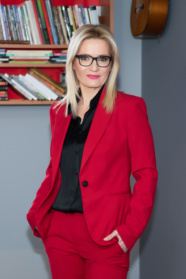
Gabrijela Kišiček is Assistant Professor at the Faculty of Humanities and Social Sciences at the University of Zagreb, Croatia. She teaches courses on Argumentation, Rhetoric, Nonverbal Communication and History of Rhetoric for the graduate students of Rhetoric but also other interested students at the University. Gabrijela Kišiček has published several papers on multimodal argumentation and also on rhetoric and argumentation in political discourse. She is author of two books: Rhetoric and Politics (2018) and Homo Politicus: Political Rhetoric in theory and practice (2021) as well as co-author of the book Rhetoric and Society (2014). Gabrijela Kišiček works as a speech coach on Croatian national television Nova TV.
Jens E. Kjeldsen
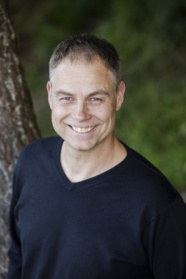 Jens E. Kjeldsen is Professor of Rhetoric and Visual Communication at University of Bergen, Norway, and Professor II in practical rhetoric at University of Oslo. He has written extensively about theory and methods of rhetoric, especially within the fields of visual and multimodal communication and argumentation, speechmaking, speechwriting and rhetorical audience studies. He is presently working on the rhetoric of the COVID-19 pandemic. He is founder and immediate past president of the Rhetoric Society of Europe and co-founder and long-time chief editor of the research journal Rhetorica Scandinavica, and initiator and leader of the researcher network International Network for the Study of Credibility, Ethos, and Trust.
Jens E. Kjeldsen is Professor of Rhetoric and Visual Communication at University of Bergen, Norway, and Professor II in practical rhetoric at University of Oslo. He has written extensively about theory and methods of rhetoric, especially within the fields of visual and multimodal communication and argumentation, speechmaking, speechwriting and rhetorical audience studies. He is presently working on the rhetoric of the COVID-19 pandemic. He is founder and immediate past president of the Rhetoric Society of Europe and co-founder and long-time chief editor of the research journal Rhetorica Scandinavica, and initiator and leader of the researcher network International Network for the Study of Credibility, Ethos, and Trust.
Dimitris Serafis
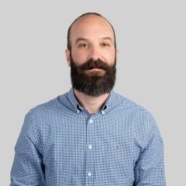 Dimitris Serafis is a Swiss National Science Foundation (SNSF) Postdoctoral Research Fellow, currently based at the University of Liverpool, and Adjunct Lecturer at USI – Università della Svizzera italiana. His research interests lie at the intersection of Critical Discourse Studies, Social Semiotics and Multimodality, and Argumentation Theory, and his current focus is on topics such as migration and hate speech, populism and authoritarianism, and crisis communication. He published articles in journals such as Discourse & Communication, Critical Discourse Studies, Journal of Language and Politics, Social Semiotics, Informal Logic. His recent publications include: “Critical perspectives on migration in discourse and communication” (Studies in Communication Sciences 2021; with Jolanta Drzewiecka and Sara Greco).
Dimitris Serafis is a Swiss National Science Foundation (SNSF) Postdoctoral Research Fellow, currently based at the University of Liverpool, and Adjunct Lecturer at USI – Università della Svizzera italiana. His research interests lie at the intersection of Critical Discourse Studies, Social Semiotics and Multimodality, and Argumentation Theory, and his current focus is on topics such as migration and hate speech, populism and authoritarianism, and crisis communication. He published articles in journals such as Discourse & Communication, Critical Discourse Studies, Journal of Language and Politics, Social Semiotics, Informal Logic. His recent publications include: “Critical perspectives on migration in discourse and communication” (Studies in Communication Sciences 2021; with Jolanta Drzewiecka and Sara Greco).
Hartmut Stöckl
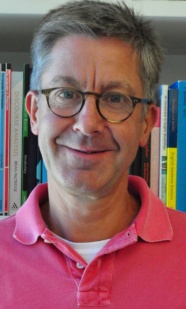 Hartmut Stöckl is full Professor of English and Applied Linguistics at Salzburg University, Austria. His main research areas are in semiotics, text/discourse/media linguistics & stylistics, pragmatics and multimodal communication. A recurrent theme surfacing in most of his work is a concern with a pluralistic theory of the multimodal text and effective analytical methods for uncovering its structures and styles. He is particularly interested in the linkage of language and image in modern media, typography and an aesthetic appreciation of advertising. His latest edited volumes are: the Handbook Language in Multimodal Contexts (2016, de Gruyter), Shifts Toward Image-Centricity in Contemporary Multimodal Practices (2020, Routledge/New York), and The Rhetoric of Multimodal Communication (2021, Special Issue/Visual Communication).
Hartmut Stöckl is full Professor of English and Applied Linguistics at Salzburg University, Austria. His main research areas are in semiotics, text/discourse/media linguistics & stylistics, pragmatics and multimodal communication. A recurrent theme surfacing in most of his work is a concern with a pluralistic theory of the multimodal text and effective analytical methods for uncovering its structures and styles. He is particularly interested in the linkage of language and image in modern media, typography and an aesthetic appreciation of advertising. His latest edited volumes are: the Handbook Language in Multimodal Contexts (2016, de Gruyter), Shifts Toward Image-Centricity in Contemporary Multimodal Practices (2020, Routledge/New York), and The Rhetoric of Multimodal Communication (2021, Special Issue/Visual Communication).
Assimakis Tseronis
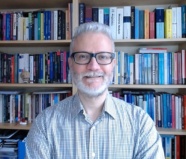 Assimakis Tseronis is Senior Lecturer in the section of Rhetoric at Örebro University in Sweden. He teaches courses on rhetoric and argumentation as well as on visual and multimodal communication. His research interests fall under the areas of discourse analysis, multimodal rhetorical argumentation and pragmatics. He has published on printed advertisements, magazine covers and documentary films. Among his publications are the volume Multimodal argumentation and rhetoric in media genres that he co-edited with Charles Forceville (2017), published by John Benjamins, and a special issue, co-edited with Chiara Pollaroli, on the pragmatics of multimodal argumentation that appeared in the International Review of Pragmatics (2018).
Assimakis Tseronis is Senior Lecturer in the section of Rhetoric at Örebro University in Sweden. He teaches courses on rhetoric and argumentation as well as on visual and multimodal communication. His research interests fall under the areas of discourse analysis, multimodal rhetorical argumentation and pragmatics. He has published on printed advertisements, magazine covers and documentary films. Among his publications are the volume Multimodal argumentation and rhetoric in media genres that he co-edited with Charles Forceville (2017), published by John Benjamins, and a special issue, co-edited with Chiara Pollaroli, on the pragmatics of multimodal argumentation that appeared in the International Review of Pragmatics (2018).
ABSTRACTS of the Training Sessions
DETAILED PROGRAMME of the Training School
Target audience
The training school is intended for both academics and practitioners who are working with material that combines a variety of modes and are interested in analysing multimodal communication from the perspective of argumentation and rhetoric.
Please note that applying for the training school does not automatically guarantee access to it. In case of high application numbers priority will be given to PhD students or early career researchers (max. 8 years since PhD award).
Funding
Participants affiliated to an academic institution or company from a COST Full Member Country, a COST Cooperating Member Country or from a COST Near Neighbour Country may apply for a bursary. The exact value of the bursary depends on expected costs for travel and accommodation. The maximum amount that may be reimbursed will be communicated to the participants when notified of their acceptance to the training school.
Important dates
- Deadline for application: 14 February, 2022
- Notification of acceptance: 28 February, 2022
- Confirmation of participation: 4 March, 2022
Information about the venue
At this stage the training school is planned as a face-to-face only event to be held on campus at Örebro University School of Humanities, Education and Social Sciences
Depending on how the situation with the COVID-pandemic develops, a hybrid or online modality will be considered.
Training School contacts:
Local organizer: Dr. Assimakis Tseronis
https://www.oru.se/english/employee/assimakis_tseronis
School of Humanities, Education and Social Sciences
Örebro University
Fakultetsgatan 1
SE-701 82 Örebro
SWEDEN
Training school coordinator: Dr. Gabrijela Kišiček
Faculty of Humanities and Social Sciences
University of Zagreb
Ivana Lucica 3
10000 Zagreb
=====================================================================================================
POST EVENT
=====================================================================================================
COST-APPLY TRAINING SCHOOL ÖREBRO POST EVENT REPORT
The purpose of the Örebro Training School was to introduce the participants to a variety of approaches to the study of the multimodal communication of public policy from the perspectives of rhetoric and argumentation studies. It was attended by 15 participants from 11 different countries in the COST network.
The programme of the school (see links to the schedule and abstracts above) consisted of five training sessions that were held by five trainers, four of whom were invited from abroad. Each session consisted of a lecture that introduced the participants to a specific perspective (ranging from argumentation theory, rhetorical analysis, to critical discourse analysis and genre analysis) and a workshop, where participants had the opportunity to apply the various analytical categories presented during the lecture to the discussion of examples of multimodal communication regarding policies on climate crisis, immigration, and health among others. In each workshop a different genre as well as a different stakeholder’s perspective were on focus.
Before the first session, participants had the chance to briefly present themselves to the rest of the group in the form of an elevator pitch. During the first training session, Assimakis Tseronis from Örebro University presented the participants with the challenges of combining insights from multimodal discourse analysis and argumentation theory. He then introduced the pragma-dialectical framework as one that can help to address most of these challenges and touched upon some issues that arise when one deals with the evaluation of multimodal argumentation. At the workshop, the participants had the time to work in small groups on multimodal material from European Commission’s official social media concerning the directive on copyright, Erasmus exchange programmes, the EU economic recovery package and EU new energy plan. The goal was to discuss the possibilities and limitations for identifying and reconstructing argumentation when paying systematic attention to the verbal and the visual form and content.
During the second session, Jens Kjeldsen from the University of Bergen, introduced participants to different methods for conducting rhetorical reception analysis (such as textual analysis of secondary texts, focus groups and interviews, stimulus material and protocol-analysis, and ethnographic studies) with the aim of capturing the ways multimodal texts are understood and negotiated as argumentative by the viewers and users of these texts. At the workshop, participants practiced in groups of two on the interview and protocol analysis of visual material concerning the measures against the covid-19 pandemic or material that they selected on their own. The goal was to combine the insights from the textual analysis and the reception analysis in order to arrive at a thicker description of the rhetorical meaning of the material under discussion.
On the second day of the school, Hartmut Stöckl from the University of Salzburg focused on the genre of advertising and the various ways that have been proposed to reconstruct arguments by paying attention to the creative ways that graphic designers use in order to promote products or services. As the lecture made clear, arguments in advertising are loose in structure, implicit in form, minimalist in signing and dependent on knowledge of the respective public discourses. During the workshop, the participants had the change to discuss questions that were raised from the assigned readings as well as to propose the reconstruction of argumentation in a great variety of advertisements that belong to the pro-social subgenre, concerning issues such as climate, domestic violence, and mental or physical health.
During the fourth session, Dimitris Serafis from the Universita della svizzera italiana, currently working at the University of Liverpool, introduced the participants to a critical perspective to the argumentative analysis of multimodal communication that combines the insights of Multimodal Critical Discourse Studies with the Argumentum Model of Topics in order to reconstruct the argumentative inferences created by the combination of semiotic resources. At the workshop, participants worked in smaller groups in order to analyse the arguments conveyed in the front pages of newspapers from their own countries dealing with the refugee crisis and Brexit. The goal was to train the participants in applying the categories from the AMT to the analysis of material from the press and to discuss the challenges that arise in the reconstruction process.
On the third day of the school, Gabrijela Kišiček from the University of Zagreb gave a lecture about auditory arguments and the importance of sound in multimodal argumentative discourse. The focus was on prosodic features such as voice quality, tempo, rhythm, intonation, and loudness, among others and the distinction between their general persuasive powers and more specific argumentative functions, relating to concrete types of argument such as argument from sign or cause. For the workshop, participants were asked to assume the role of a producer of a complex audiovisual argumentative message concerning the communication about EU policy on energy, health, technology or other. They were asked to present an idea for a TV spot where image, text and sound are combined.
The training school ended with a session devoted to the exchange of ideas for a collaborative publication project on the topic of Multimodal Rhetoric and Argumentation in Public Policy Communications. Five working groups were formed, each under the supervision of one trainer followed by two or three participants. The goal was to think of topics and multimodal material that would be interesting to study following one of the perspectives presented during the school or a combination of these. During a plenary session, all five teams had the chance to present their draft idea and to receive feedback from the rest of the participants.
Throughout the training school, the participants had the chance to ask questions during the lectures and enter into lively discussions about the argumentative interpretation and reconstruction of multimodal texts during the workshops. The discussions and exchange of ideas continued during the coffee and lunch breaks. On the evening of the second day, a dinner was organized which brought together the participants of the training school with staff from the Humanities department of Örebro University and guest professor John Bateman from Bremen University who is visiting the university under a Humboldt-Riksbankens Jubileumsfond scholarship.
The extraordinary snowstorm that struck in the late evening of the third day of the training school made the whole event even more special despite the disruption that it may have caused to the travel plans of some of the participants.


